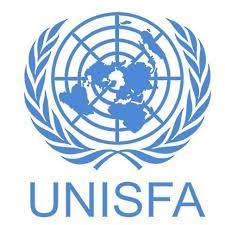Economy
ES Arabic, Islamic commission lauds UNICEF’s interventions in ”Almajiri” education

Dr Umar Dandin-Mahe, the Executive Secretary of Arabic and Islamic Commission in Sokoto state, has commended the UN Children Education Fund (UNICEF) for its interventions in ”Almajiri” education and commitment to children’s welfare worldwide.
Dandin-Mahe made this known on Sunday at the end of a four-day training for 100 teachers of ”Tsangaya” schools on child safeguarding and alternative care for almajiri children in Sokoto state.
The News Agency of Nigeria (NAN) reports that the programme is funded by the Eleva Foundation of the UK and anchored by the Sokoto State Arabic and Islamic Education Commission and UNICEF.
“Our children in Almajiri schools should be seen as very neat, comfortable and given the needed care to appease others.
” We have about N7, 000 Islamiyya and Almajiri Qur’anic schools in Sokoto state as many have not even registered, I am optimistic that with the present support things will be transformed,” he said.
Dandin-Mahe urged the clerics to utilise every segment of the training and put in practice for better understanding as well as standard practices of handling the children.
He also called for a law prescribe the acceptable age within which parents can take their wards to other places for Islamic education.
A participant, Malam Jabbi Ibrahim, from Sokoto State Zakkat and Waqf Commission, stressed the need for communities to study Almajiri education system and the proliferation of schools.
Ibrahim, who is the Director of Endowment Services of the commission, implored people to differentiate between the large number of children roaming the streets and ”Almajiri” children.
He said some factors that comprised insecurity, climate change and other challenges had rendered many homeless.
He said the Sokoto government copied systems from Malaysia and Indonesia to transform the ”almajiri” education system and injected more funds to support those schools.
Earlier, UNICEF Child Protection Officer, Mr Williams Nwaokorie, said the effort is part of the responses to the need of almajiri and Out-of-School children.
Nwaokerie said participants would be trained on adoption of alternative care minimum standards for almajiri children out of family care.
He said it would enable them to properly look after and protect the children entrusted to them who are learning Islamic teachings.
” UNICEF has a zero tolerance policy towards any form of bullying, harassment, sexual exploitation and abuse of children.
” Children are the primary beneficiaries of our work, hence we are committed to ensuring that all our implementing partners and relevant stakeholders do not cause any harm, abuse or commit any act of violence against children, ” Nwaokerie said.
He added that 100 teachers were selected from eight local government areas in Sokoto state on best child safeguarding principles and alternatives in order to protect children under their care.
NAN reports that the lead facilitator, Prof. Umar Alkali, reminded participants that Allah will ask parents over their responsibilities to their wards stressing that Islam bestowed certain rights on children. ,
”These rights include that of life, education, dignity, health, lineages, prevention, provision and participation as the core objective of UNICEF child safeguarding policy, which Islamic teachers are encouraged to imbib,” Alkali said.
Alkali further clarified that the child can attend both western and Islamic schools from their parents homes even before attaining the age of 10.
The scholar advised that teachers should establish school committees to facilitate tracking of students and know their whereabouts, hygiene and other socioeconomic activities.
He also called for more provisions from the government for teachers and students welfare, infrastructure and empowerment of students to further their studies and occupational training.
NAN reports that participants unanimously agreed that the ideal year should be 10 years. (NAN)
Economy
CBN Takes Steps to Strengthen Banking Sector, Issues Routine Transitional Guidance

The Central Bank of Nigeria (CBN), has introduced time-bound measures for some banks still completing their transition from the temporary regulatory support provided in response to the economic impact of the COVID-19 pandemic.
According to a statement issued by Mrs Hakama Sidi-Ali, , CBN’s Acting Director, Corporate Communications Department , this is part of its ongoing efforts to strengthen the banking system.
Sidi-Ali said that the step was part of the CBN’s broader, sequenced strategy to implement the
recapitalisation programme announced in 2023.
She said that the programme, designed to align
with Nigeria’s long-term growth ambitions, had already led to significant capital inflows and balance sheet strengthening across the sector.
“Most banks have either completed or are on track to meet the new capital requirements well before the final implementation deadline of March 31, 2026.
“The measures apply only to a limited number of banks. These include temporary restrictions on capital distributions, such as dividends and bonuses to support retention of internally generated funds and bolster capital adequacy.
“All affected banks have been formally notified and remain under close supervisory engagement ” she said.
She said that to support a smooth transition, the CBN had allowed limited, time-bound flexibility
within the capital framework, consistent with international regulatory norms.
“Nigeria generally maintains Risk-Based Capital requirements that are significantly more stringent than the global Basel III minimums.
“These adjustments reflect a well-established supervisory process consistent with global norms. Regulators in the U.S., Europe, and other major markets have implemented similar transitional measures as part of post-crisis reform efforts.
“The CBN remains fully committed to continuous engagement with stakeholders throughout this period via the Bankers’ Committee, the Body of Bank CEOs, and other industry forums,” she said.
She said that the goal to ensure a transparent, Nigeria’s banking sector remained fundamentally strong.
According to her, these measures are neither
unusual nor cause for concern.
She said that they were a continuation of the orderly and deliberate implementation of reforms already underway.
She said that the CBN would continue to take all
necessary actions to safeguard the sector’s stability and ensure a robust, resilient financial ecosystem that supports sustainable economic growth. (NAN)
Economy
Cybercrime: First Bank Invests N15bn to Protect Systems From hackers in 5 months –CEO

First Bank HoldCo Plc says it has spent more than N15 billion to protect its systems against criminals between January and June.
Olusegun Alebiosu, the Chief Executive Officer (CEO), First Bank HoldCo Plc, said this in an interview in Abuja on Wednesday.
Alebiosu, who spoke on the sideline of a two-day National Seminar on Banking and Allied Matters for Judges, said the Bank had spent three N3 billion in June to protect its systems.
He said the bank had the best cyber security framework in the country, hence the investment.
The CEO who was speaking on the increasing number of attacks by cybercriminals, especially on banks’ systems, assured First Bank customers of the safety of their monies.
Alebiosu frowned at the rate at which some citizens were involved in cybercrimes, saying the country must move fast to curb their excesses.
”No customer would lose their money in First Bank unjustly.
”If their money is missing in First Bank, First Bank will pay back.
”Before I joined First Bank, I have an account with First Bank.
”One of the reasons why I had an account with First Bank was, I said to myself, if my money is missing, it is the only bank I know I will collect my money without any excuses, ” he said.
Reacting to some customers’ complaints on the delay by the bank to handle cases of fraudulent transactions, Alebiosu said the bank must conduct investigations involving different stakeholders.
The CEO said the delay was caused by the collaboration between the stakeholders involving security agencies and banks where the money was transferred to determine the realities about the cases.
He urged customers to tread carefully in handling and releasing their financial information.
”Customers themselves, most times, also compromise their own security details; I have seen a lot of people that give their cards to somebody to help them withdraw money from their ATM.
”They compromise their password so, when something happens and you say, my money disappeared, you forget the day you gave your card to someone else and they can use that to transfer your money.
”Some people compromise even their own ID on the system carelessly, some give their Bank Verification Number (BVN) and they use it against them.
”Now, why does it take time for the bank to react, everything you give to the bank, the bank has to investigate it.
”The money might have gone to other banks so, you start tracking from other banks but
Sometimes customers are impatient,” he said.
On frauds allegedly perpetrated by staff, he said the bank had internal employee fraud software, that monitors activities of employees on the system.
According to him, if you know how many of our staff we sack on a monthly basis, you won’t believe me.
”So if there are triggers, people will be involved. It is for us to run faster than them, and see how we can help to stop these kinds of things in our system but wherever we see it, we deal with it decisively, ” Alebiosu said.
He said that various stakeholders including the banks, law enforcement agencies and the judiciary had a role to play in curbing cybercrimes. (NAN)
Economy
GTCO Begins Deduction of USSD Fee From Airtime Balance

Guaranty Trust Holding Company (GTCO), says it will begin the deduction of Unstructured Supplementary Service Data (USSD fee from the airtime balance of its customers from June 18.
The bank in a message to its customers on Wednesday, said the N6.98 fee would no longer be deducted from customers’ bank account balance.
”Dear Customer, please be informed that effective June, 18, the N6.
98 USSD fee will be deducted from your airtime balance, no longer from your bank account”.The Nigerian Communications Commission (NCC) had directed deposit money banks (DMBs) to stop deducting charges for USSD transactions directly from customers’ accounts. (NAN)



















0 Comments